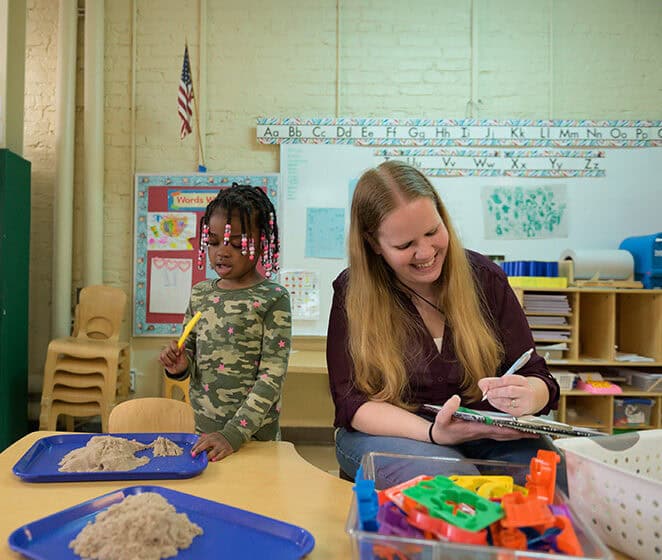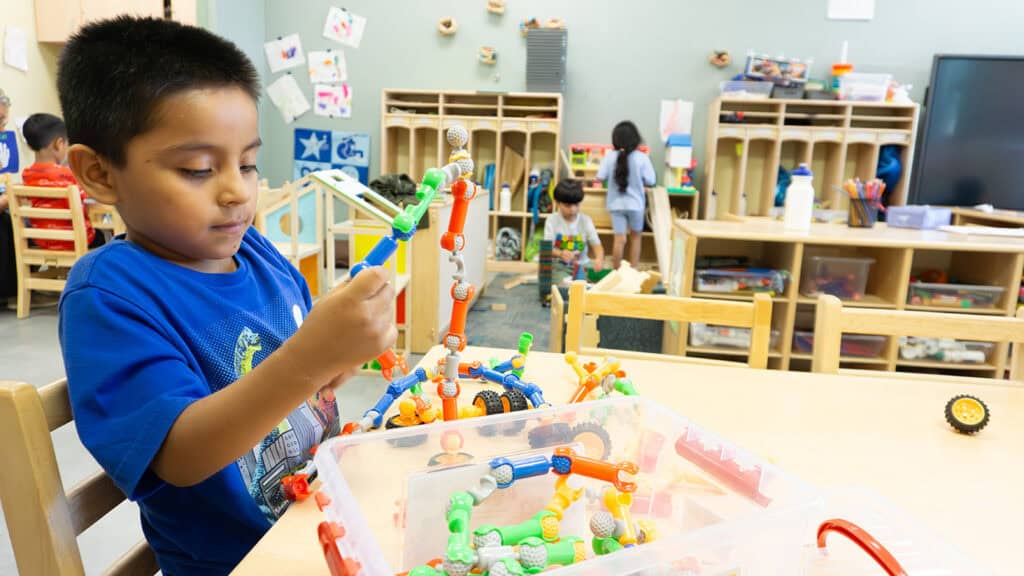
Educare National Evaluation
The aim of the Educare National Evaluation is to document and learn from analyses of:
- Common and unique local features of Educare schools
- Quality and outcomes over time
- Connections between program practices and family, child and workforce outcomes.
Since 2007, Educare researchers – including Local Evaluation Partner teams for each Educare school and National Evaluation Partners at Frank Porter Graham Child Development Institute – have been working alongside Educare school leaders, staff and families from across the Network to carry out the Educare National Evaluation.
National Evaluation data contributed annually includes:
- Observations of classroom quality: environment, interactions, instruction
- Family interviews: supports, stress, relationships, activities, hardships, hopes, well-being, personal characteristics
- Family surveys: experiences and relationships at Educare, beliefs about and approach to racial socialization, preparation for transitions
- Child assessment: language, social-emotional skills and behaviors
- Staff surveys: stress, practices and interactions, workplace climate and experiences, beliefs about and approach to racial socialization, personal characteristics
- Administrative data: staffing, children’s characteristics, enrollment, participation
